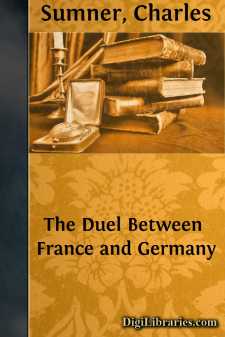Categories
- Antiques & Collectibles 13
- Architecture 36
- Art 48
- Bibles 22
- Biography & Autobiography 816
- Body, Mind & Spirit 145
- Business & Economics 28
- Children's Books 18
- Children's Fiction 14
- Computers 4
- Cooking 94
- Crafts & Hobbies 4
- Drama 346
- Education 58
- Family & Relationships 59
- Fiction 11831
- Foreign Language Study 3
- Games 19
- Gardening 17
- Health & Fitness 34
- History 1378
- House & Home 1
- Humor 147
- Juvenile Fiction 1873
- Juvenile Nonfiction 202
- Language Arts & Disciplines 89
- Law 16
- Literary Collections 686
- Literary Criticism 179
- Mathematics 13
- Medical 41
- Music 40
- Nature 179
- Non-Classifiable 1768
- Performing Arts 7
- Periodicals 1453
- Philosophy 66
- Photography 2
- Poetry 897
- Political Science 203
- Psychology 45
- Reference 154
- Religion 516
- Science 126
- Self-Help 86
- Social Science 82
- Sports & Recreation 34
- Study Aids 3
- Technology & Engineering 59
- Transportation 23
- Travel 463
- True Crime 29
Our website is made possible by displaying online advertisements to our visitors.
Please consider supporting us by disabling your ad blocker.
The Duel Between France and Germany
by: Charles Sumner
Categories:
Description:
Excerpt
WAR UNDER THE LAW OF NATIONS A DUEL.
But no classical authority is needed for this designation. War, as conducted under International Law, between two organized nations, is in all respects a duel, according to the just signification of this word,—differing from that between two individuals only in the number of combatants. The variance is of proportion merely, each nation being an individual who appeals to the sword as Arbiter; and in each case the combat is subject to rules constituting a code by which the two parties are bound. For long years before civilization prevailed, the code governing the duel between individuals was as fixed and minute as that which governs the larger duel between nations, and the duel itself was simply a mode of deciding questions between individuals. In presenting this comparison I expose myself to criticism only from those who have not considered this interesting subject in the light of history and of reason. The parallel is complete. Modern war is the duel of the Dark Ages, magnified, amplified, extended so as to embrace nations; nor is it any less a duel because the combat is quickened and sustained by the energies of self-defence, or because, when a champion falls and lies on the ground, he is brutally treated. An authentic instance illustrates such a duel; and I bring before you the very pink of chivalry, the Chevalier Bayard, "the knight without fear and without reproach," who, after combat in a chosen field, succeeded by a feint in driving his weapon four fingers deep into the throat of his adversary, and then, rolling with him, gasping and struggling, on the ground, thrust his dagger into the nostrils of the fallen victim, exclaiming, "Surrender, or you are a dead man!"—a speech which seemed superfluous; for the second cried out, "He is dead already; you have conquered." Then did Bayard, brightest among the Sons of War, drag his dead enemy from the field, crying, "Have I done enough?" [Footnote: La tresjoyeuse, plaisante et recreative Hystoire, composee par le Loyal Serviteur, des Faiz, Gestes, Triumphes et Prouesses du Bon Chevalier sans Paour et sans Reprouche, le Gentil Seigneur de Bayart: Petitot, Collection des Memoires relatifs a l'Histoire de France, Tom. XV. pp. 241, 242.] Now, because the brave knight saw fit to do these things, the combat was not changed in original character. It was a duel at the beginning and at the end. Indeed, the brutality with which it closed was the natural incident of a duel. A combat once begun opens the way to violence, and the conqueror too often surrenders to the Evil Spirit, as Bayard in his unworthy barbarism.
In likening war between nations to the duel, I follow not only reason, but authority also. No better lawyer can be named in the long history of the English bar than John Selden, whose learning was equalled only by his large intelligence. In those conversations which under the name of "Table-Talk" continue still to instruct, the wise counsellor, after saying that the Church allowed the duel anciently, and that in the public liturgies there were prayers appointed for duellists to say, keenly inquires, "But whether is this lawful?" And then he answers, "If you grant any war lawful, I make no doubt but to convince it." [Footnote: Table- Talk, ed....



